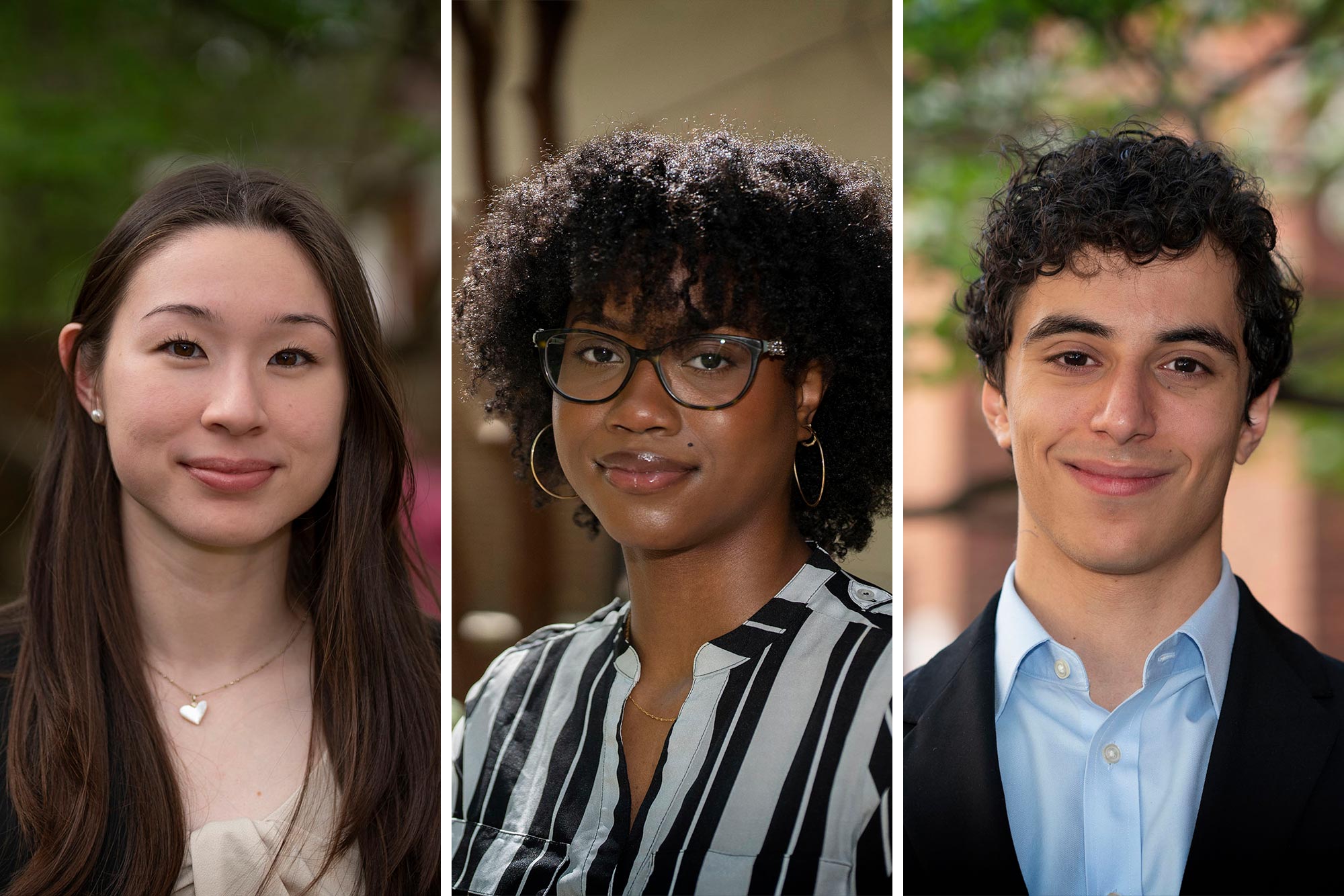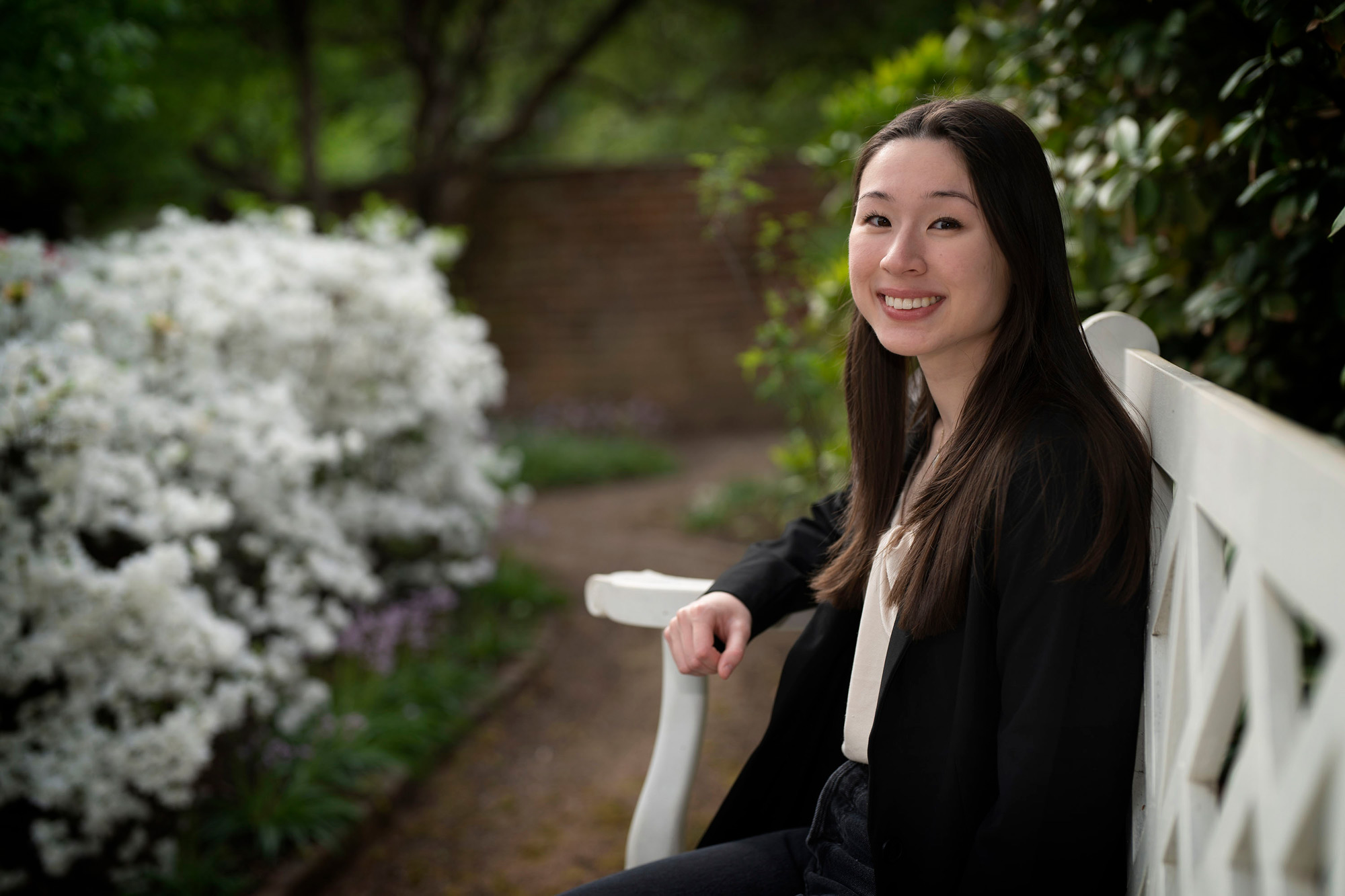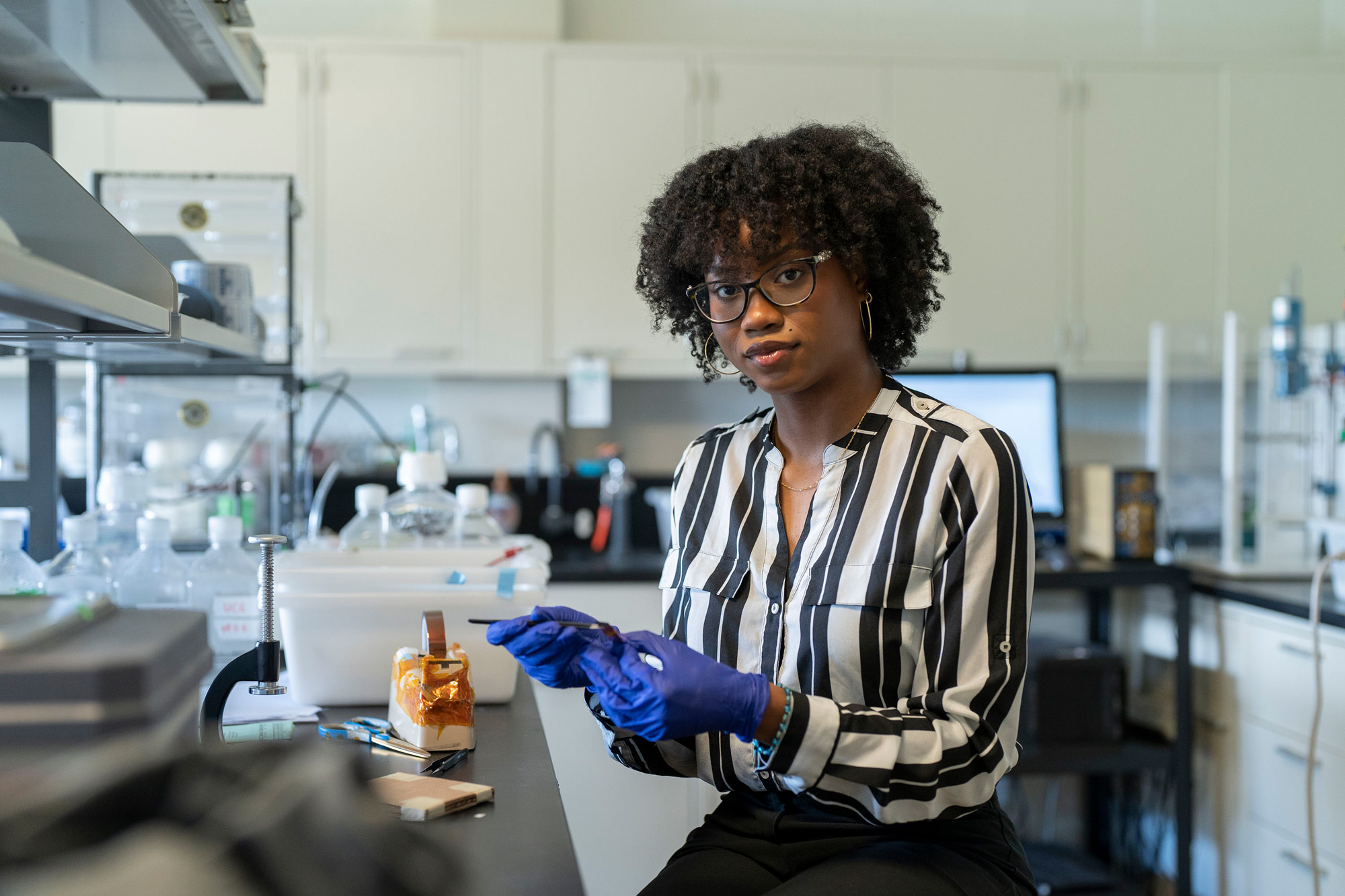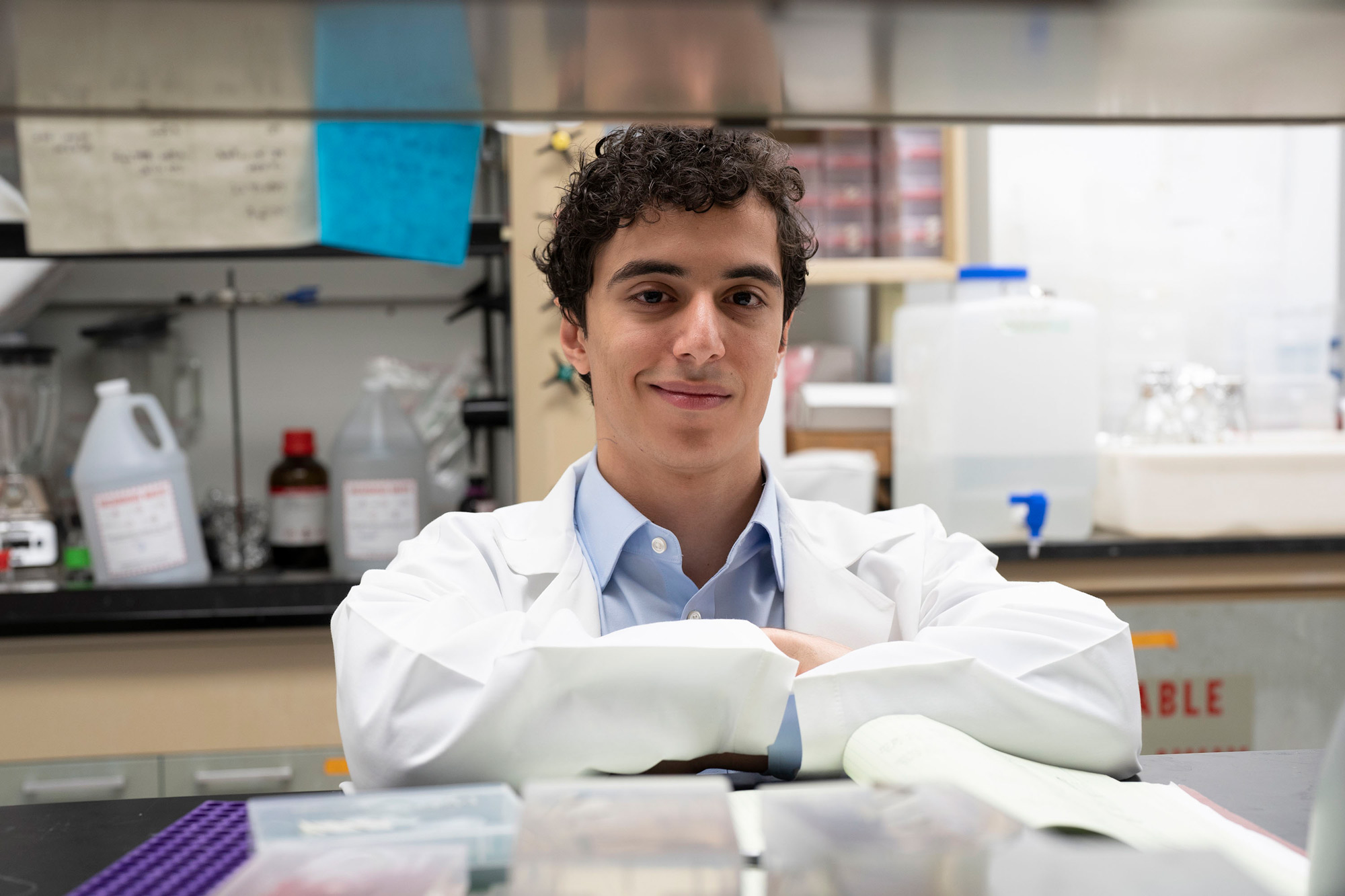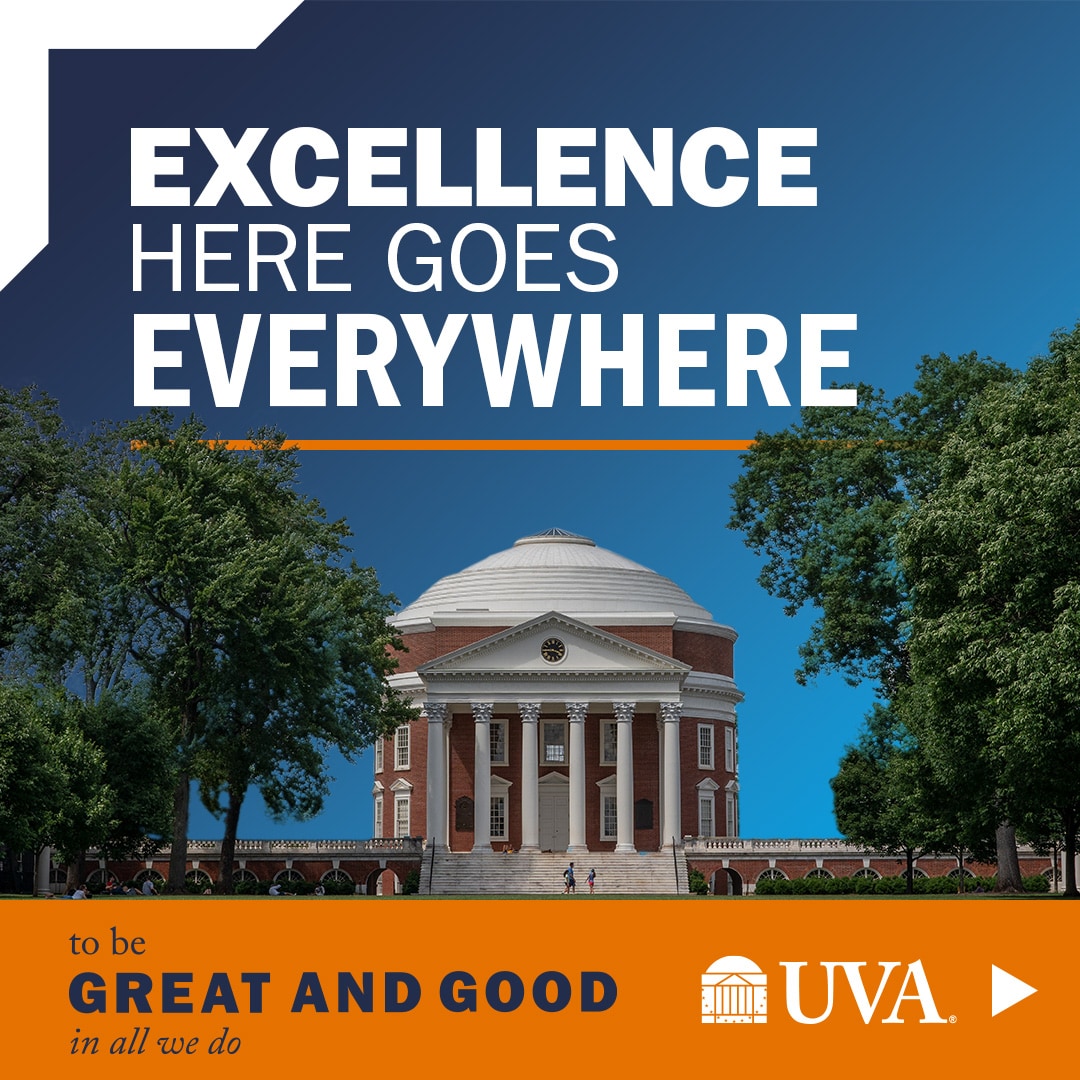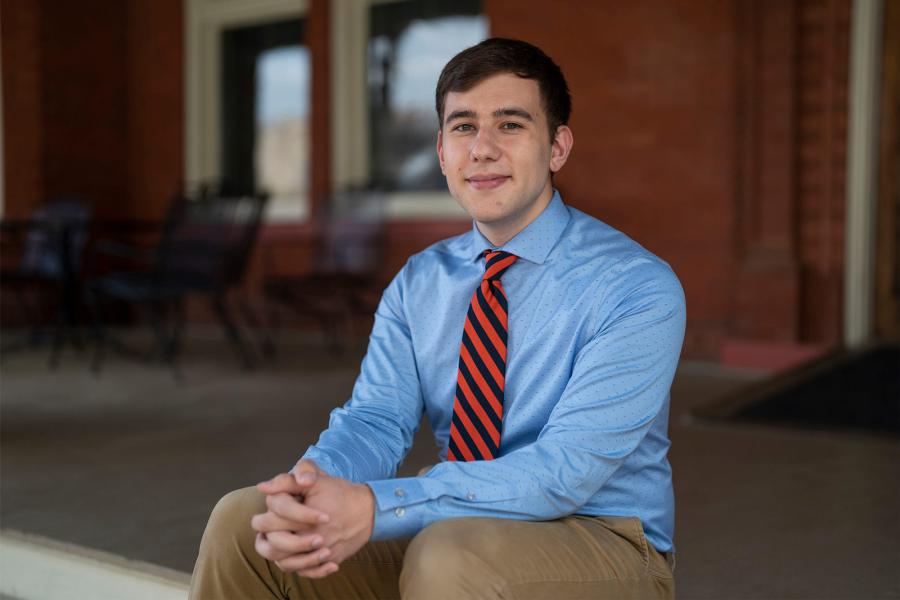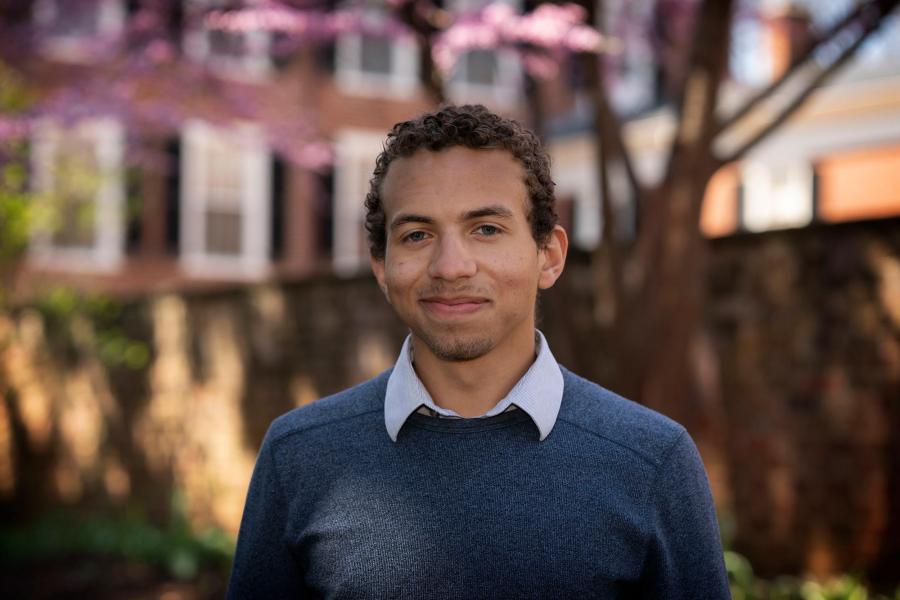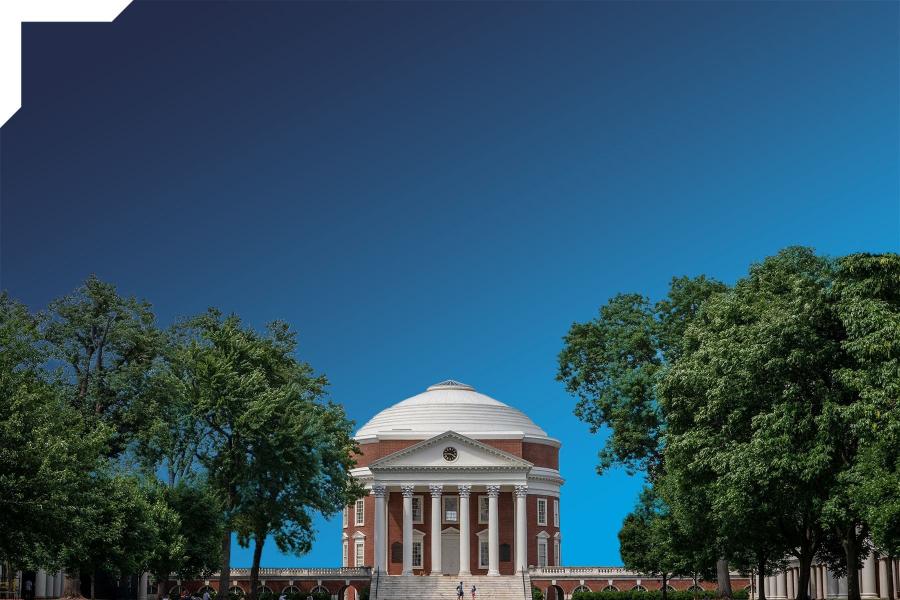“I focus on creating new nano-sized structures from molybdenum disulfide and other low-cost materials,” she said. “I’m interested in creating a catalyst that can compete with the industry-standard catalyst, platinum, for hydrogen production. If such a material can be made, the cost of implementing water-splitting as a means of hydrogen production on a commercial scale will be reduced tremendously, and hydrogen could be produced in a more environmentally friendly manner.”
Ford said receiving a Goldwater Scholarship is an acknowledgement of her drive and research output over these past few years.
“This semester has been a very difficult one for me, and receiving this award gave me a second wind to continue to push through,” she said.
Ford, who plans to apply for graduate fellowships, said she eagerly anticipates participating in the network of Goldwater Scholars.
“I am looking forward to the opportunity to be mentored by older Goldwater Scholars and to potentially mentor younger students,” she said. “I would also like to become active in the Goldwater Scholar community and inspire other students like me to reach for excellence in their fields.”
The application process taught Ford about communicating her work.
“When I wrote my research essay, I looked through old PowerPoints and pinpointed the underlying story in my research,” Ford said. “As I wrote my personal narratives, I took some time to really reflect on my previous experiences and deconstruct everything I learned during that time. I feel like I understand what factors in my college experience led me to my current research focus and career goals in a much more organized way that I did prior to applying.”
Stephen McDonnell, an assistant professor in the Department of Materials Science and Engineering, describes Ford as an extremely motivated student who excels in all aspects of her work.
“She is good-natured, good-humored, very personable, easy to be around and also a hard worker,” he said. “She never fails to have an update, which she is very good at communicating. She manages to convey confidence without arrogance, something with which many people struggle. The highest compliment I can give is that, if she could be convinced to stay at UVA for graduate school, I would be delighted to have her work in my group.”
Ford said she followed her research plan.
“I created a plan for my research experience over the semesters leading up to my application and did my best to follow it,” she said. “By the time I applied to Goldwater, the application became a way to showcase the work I put in over the course of my undergraduate career.”
Deniz Guney Olgun
A second-year neuroscience and computer science Echols Scholar from Blacksburg, Olgun is investigating the human nervous system.
